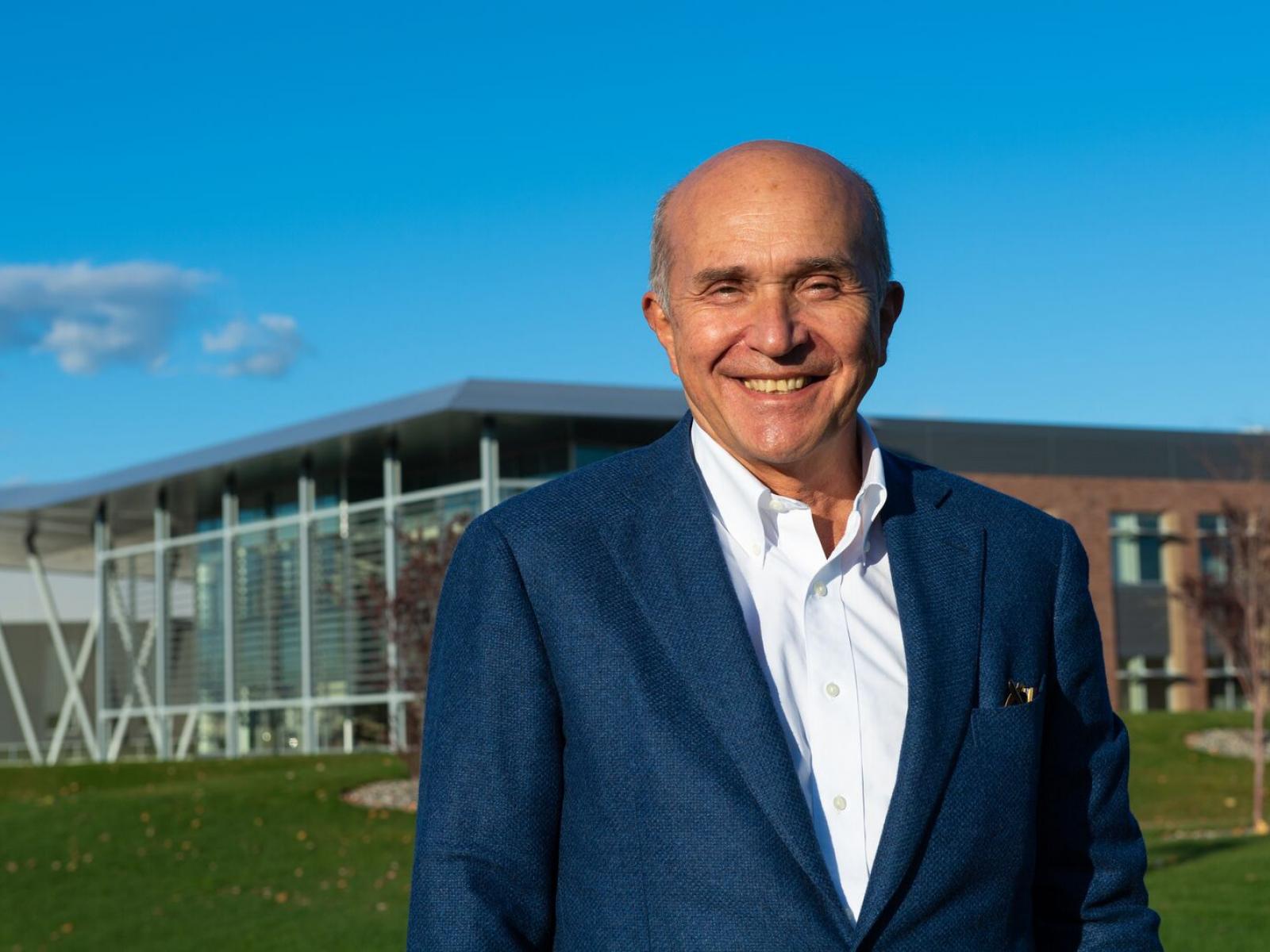Lercher Elected to the German Academy of Science and Engineering
Organization provides expert advice on the technological sciences

Johannes Lercher has pioneered the use of vibrational spectroscopy to differentiate reaction pathways on catalyst surfaces.
(Photo by Andrea Starr | Pacific Northwest National Laboratory)
Pacific Northwest National Laboratory (PNNL) Battelle Fellow and chemist Johannes Lercher was elected to the German National Academy of Science and Engineering, known as acatech. acatech seeks to “provide policymakers and society with independent, evidence-based advice that is in the public interest” both within Germany and internationally.
“My election to acatech was a delightful surprise,” said Lercher. “I’m happy and humbled by the honor.” This is the second major German honor for Lercher in 2021, as the German Catalysis Society gave him its highest award earlier this year.
Founded in 2002, acatech was established as the German Academy of Science and Engineering in 2008. Comprised of just over 600 members, election recognizes scientists as outstanding experts in their field. Appointment involves nomination by a current member, followed by approval by both a membership committee and the general member assembly.
Lercher’s research focuses on catalysis, the science of speeding up chemical reactions. His work explores fundamental aspects of industrially relevant catalysts and catalyzed reactions, aimed at lowering the global carbon footprint. He focuses on developing catalysts that can perform chemical conversions at lower temperatures and higher selectivities than current technologies.
Lercher has been a professor of chemistry at the Technische Universität München since 1998, and resides in Germany. He joined PNNL in 2011, where he serves as the Director of the Institute of Integrated Catalysis. He is currently the editor-in-chief of the Journal of Catalysis and Catalysis Communications. He is a past president of the International Zeolite Association and the European Federation of Catalysis Societies.